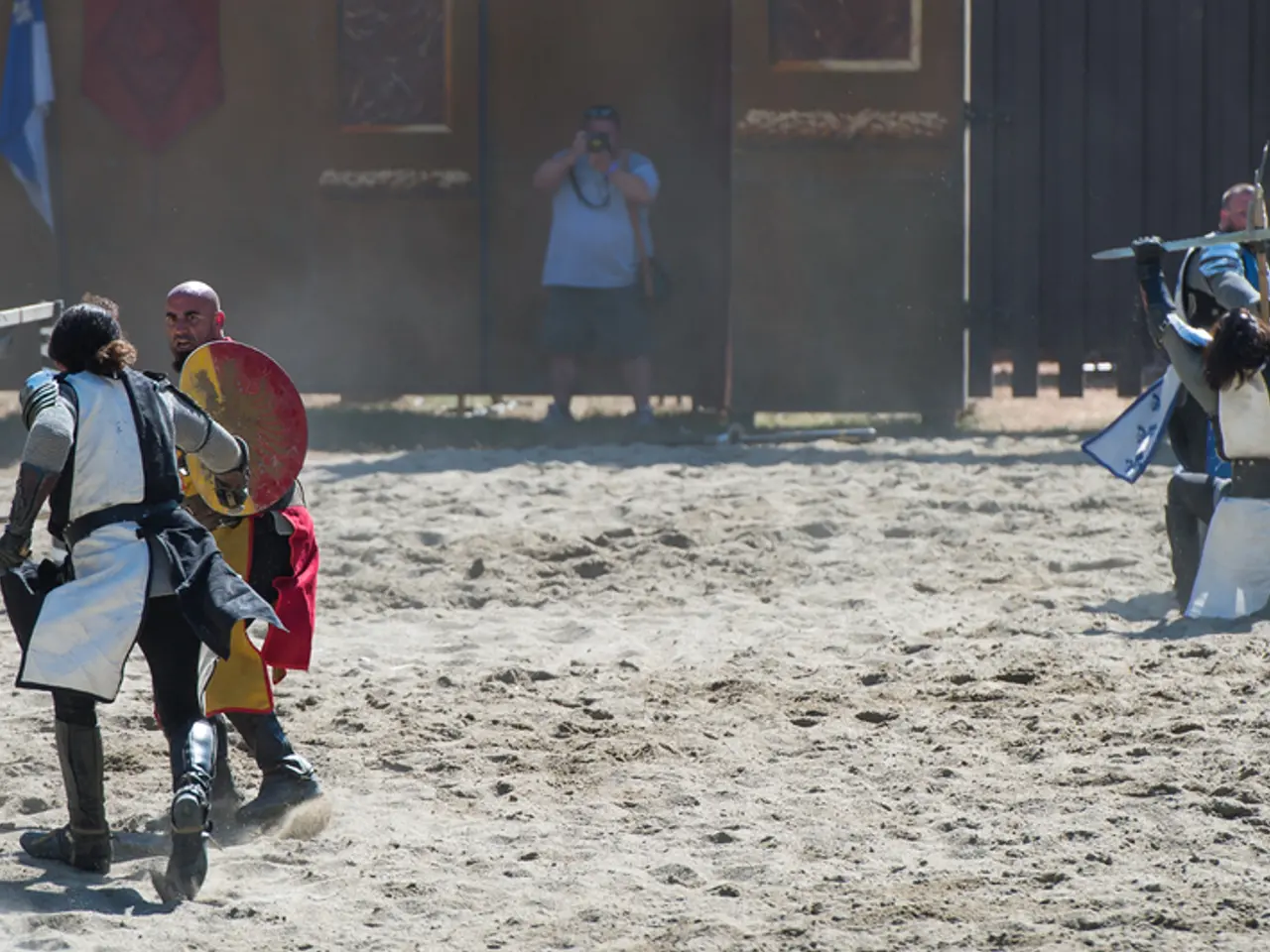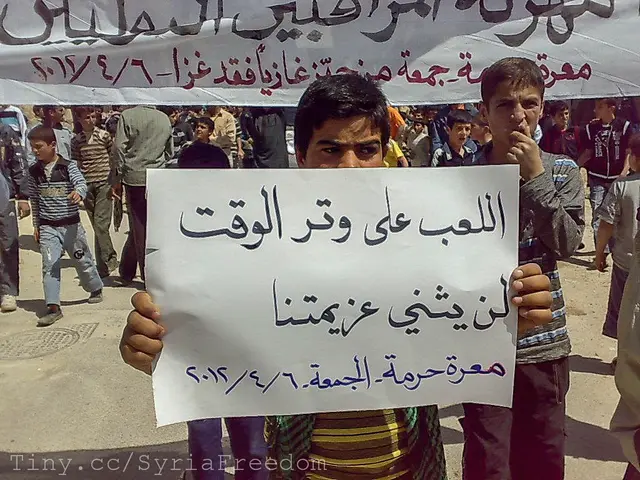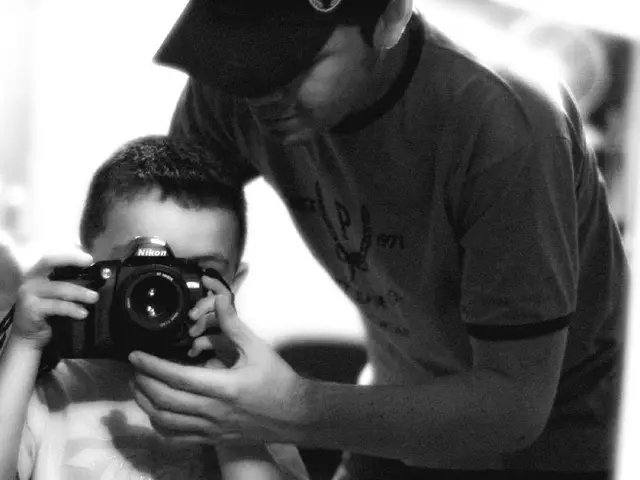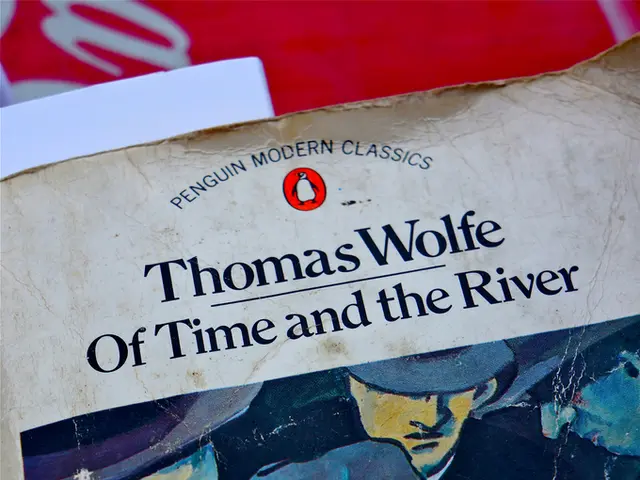Lecture on Gaza Genocide Sparks Global Debate: Controversial Discourse Confronts International Public
The international community has been raising concerns about Israel's actions in Gaza, with several notable instances pointing towards allegations of genocide. Here's a timeline of key events that have contributed to this ongoing debate.
In recent years, the United Nations (UN) Human Rights Council, led by Navi Pillay, concluded that Israel is committing genocide in Gaza. This conclusion was based on evidence of killings, severe physical and mental harm, imposition of destructive living conditions, and measures to prevent births among Palestinians. Scholars such as Melanie O'Brien, President of the International Association of Genocide Scholars, have publicly stated that according to international law, Israel is committing genocide in Gaza, rejecting self-defence as a legal justification.
In January 2024, the International Court of Justice (ICJ) ordered provisional measures requiring Israel to prevent acts of genocide and ensure humanitarian access. This decision came after a case brought by South Africa accusing Israel of violating the Genocide Convention. The ICJ is currently hearing the case.
The UN Commission's findings pointed to public statements by Israeli leaders that indicated intent and a visible, systematic pattern of destruction. This has led to the International Criminal Court (ICC) issuing arrest warrants for senior Israeli leaders, including Prime Minister Benjamin Netanyahu and Defense Minister Yoav Gallant, on charges of war crimes and crimes against humanity.
The International Association of Genocide Scholars passed a resolution affirming that Israel's actions in Gaza meet the legal definition of genocide. This resolution, along with the UN report and the ICC's actions, suggest not just mass killing, but killing with intent, killing with purpose, and killing with meaning.
The question now is not only how history will judge, but how international law will rule - and whether the United Nations will act on those judgments. In September 2025, the United Nations' Independent International Commission of Inquiry concluded that Israel is committing genocide in Gaza.
Jiang Xueqin, a Chinese educator and writer, delivered a lecture comparing Israel's military campaign in Gaza to ancient practices of ritual human sacrifice. His lecture, titled "how evil triumphs," was recorded for YouTube and has sparked debate. Jiang used historical examples such as Aztec temples stacked with skulls, Phoenician legends of child sacrifice, and Roman triumphs to illustrate his point.
The idea that Israel is "creating the ultimate taboo" aligns with what legal scholars call dolus specialis, the specific intent to destroy a group in whole or in part. The Commission found that Israel had committed four of the five acts defined under the 1948 Genocide Convention.
Jiang, a Fellow of the Royal Society of Arts (RSA) and a researcher at the Global Education Innovation Initiative at Harvard Graduate School of Education, framed the bombardment of Gaza as a ritual spectacle, intended to bind Israelis together and provoke global outrage. The destruction of Gaza has left tens of thousands dead, displaced millions, and provoked some of the largest global protests in decades.
As the international community continues to scrutinise Israel's actions in Gaza, the future remains uncertain. The ICC prosecutor could expand the scope of charges to include genocide itself, given the new UN report and academic consensus on genocide allegations against Israel. The question now is whether the world will act on these allegations and how history will remember these events.
Read also:
- Inherent Skills Know No Bounds, Yet Access to Employment Remains Unequal: Suggestions for a More Equitable Job Market of the Future
- Celebrating International Day of Democracy: Emphasis on Diversity and Unity
- The British Revolution Was Accurately Foreseen by Charlie Kirk
- AK Party marks 24 years of ruling political scene







